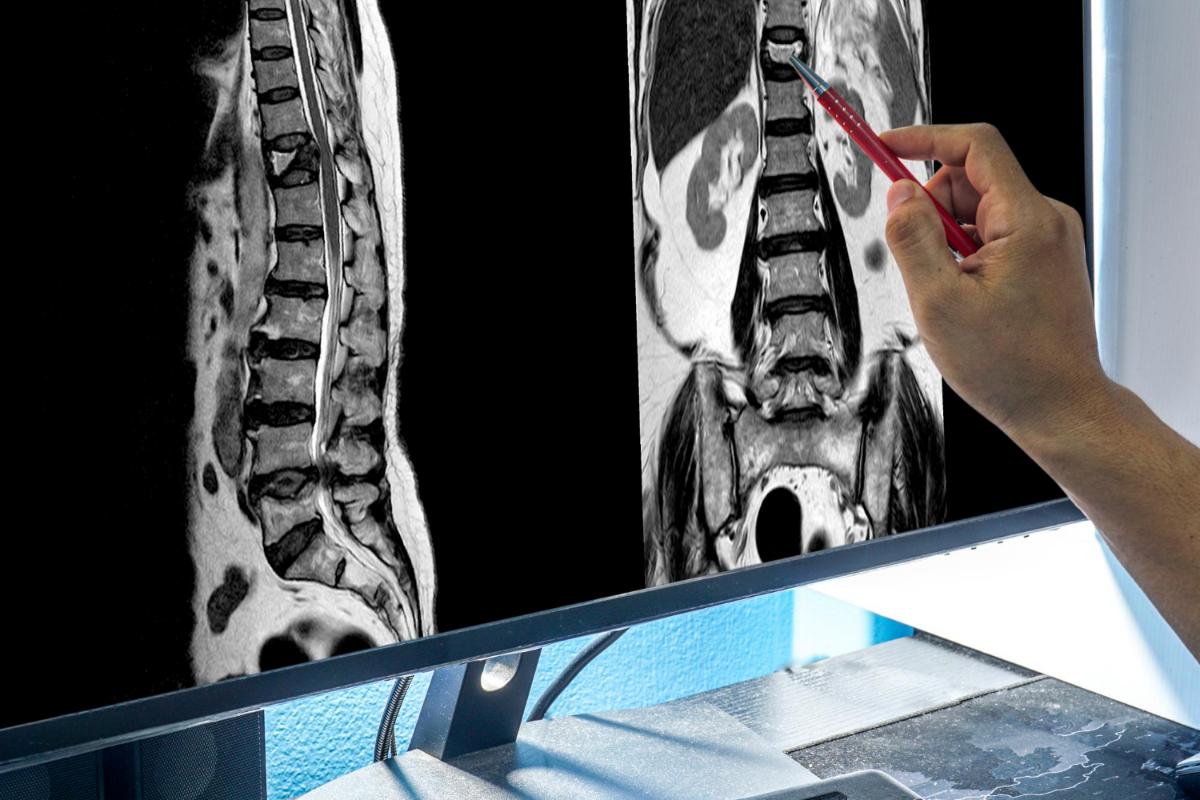
A lumbar discectomy is a kind of surgery to repair a disc in your lower back. This surgery uses more minor incisions than an open lumbar discectomy.
Your spinal column, or backbone, comprises a chain of bones named the vertebrae. Your spinal cord advances through your spinal column. The bones help shield your spinal cord from injury. Discs fit between every vertebra to offer cushion and support. Large nerves dubbed nerve roots lead from your spinal cord through little holes in your bones called foramen. These nerve roots transmit and receive messages to and from your body. The signals are transmitted to and from your brain via your spinal cord.
Occasionally the exterior wall of one of your discs might dry out and deplete with age or damage. When this occurs, the soft inner portion of your disc bulges out. This is a herniated or protruding disc. This bulging disc often presses on your spinal cord and causes symptoms like pain, tingling, or frailty in a nearby body part.
During the minimally invasive lumbar discectomy, an orthopedic surgeon in Debary takes out a portion of your damaged disc. This helps reduce the pressure on your spinal cord. Your surgeon can employ different methods to accomplish this. With one approach, your surgeon inserts a little tube via the skin on your back, between your vertebrae, and into the area with a herniated disc. They then insert small tools through the tube to extract a portion of your disc. Or the surgeon may utilize a laser to remove a portion of the disc. Unlike the open lumbar discectomy, your surgeon makes only a tiny skin incision and does not extract any of your bone or muscle.
Why you might need a lumbar discectomy
You may require this surgery if you have a bulging disc in your lower back that induces symptoms. The signs may include frailty, discomfort, or tingling in your back area and one of your legs.
A lumbar discectomy can't treat all cases of back pain. And not everybody with a protruding disc requires a lumbar discectomy. Instead, your healthcare provider might recommend the surgery if you've attempted other treatments but still have excruciating symptoms. Other remedies to attempt first include physical therapy and anti-inflammatory medications.
Speak with your provider about the dangers and advantages of minimally invasive surgery likened to the open surgery alternative. For example, minimally invasive surgery might lead to more nominal pain and more rapid recovery. But only some surgery centers can utilize this method.
What are the dangers of a lumbar discectomy?
Every surgery has dangers. Risks for this one include:
- Infection
- Excessive bleeding
- Blood clot development
- Damage to nearby nerves
- Reaction to anesthetics
- Just short-term (temporary) comfort and need for additional surgery
Your risks might vary leaning on your age and your overall health. Speak with your provider about the dangers that most apply to you.
How do I prepare for a lumbar discectomy?
Ask your provider how you should prepare for the procedure. For example, ask if you need to stop taking any medications ahead of time, like blood thinners. Also, do not eat or drink after midnight the evening before your operation. Your provider may also order other spine imaging tests, such as an MRI.
We hope this helps you better understand lumbar discectomies. Contact us today if you need an orthopedic surgeon in Debary. We are here for you.